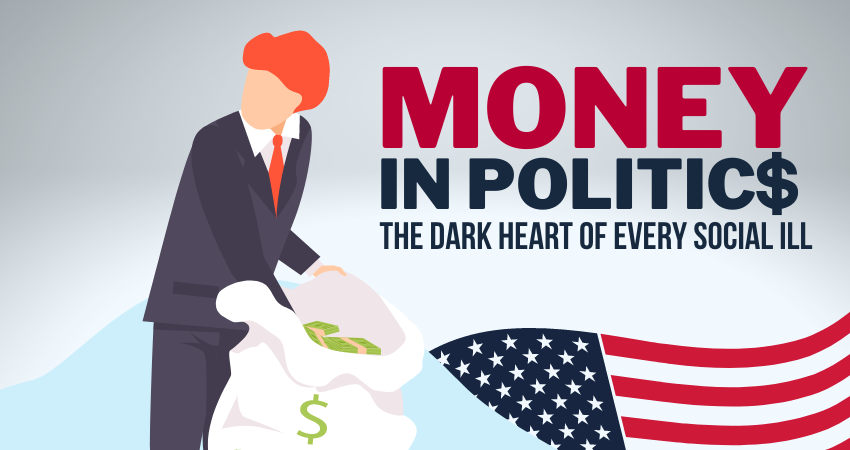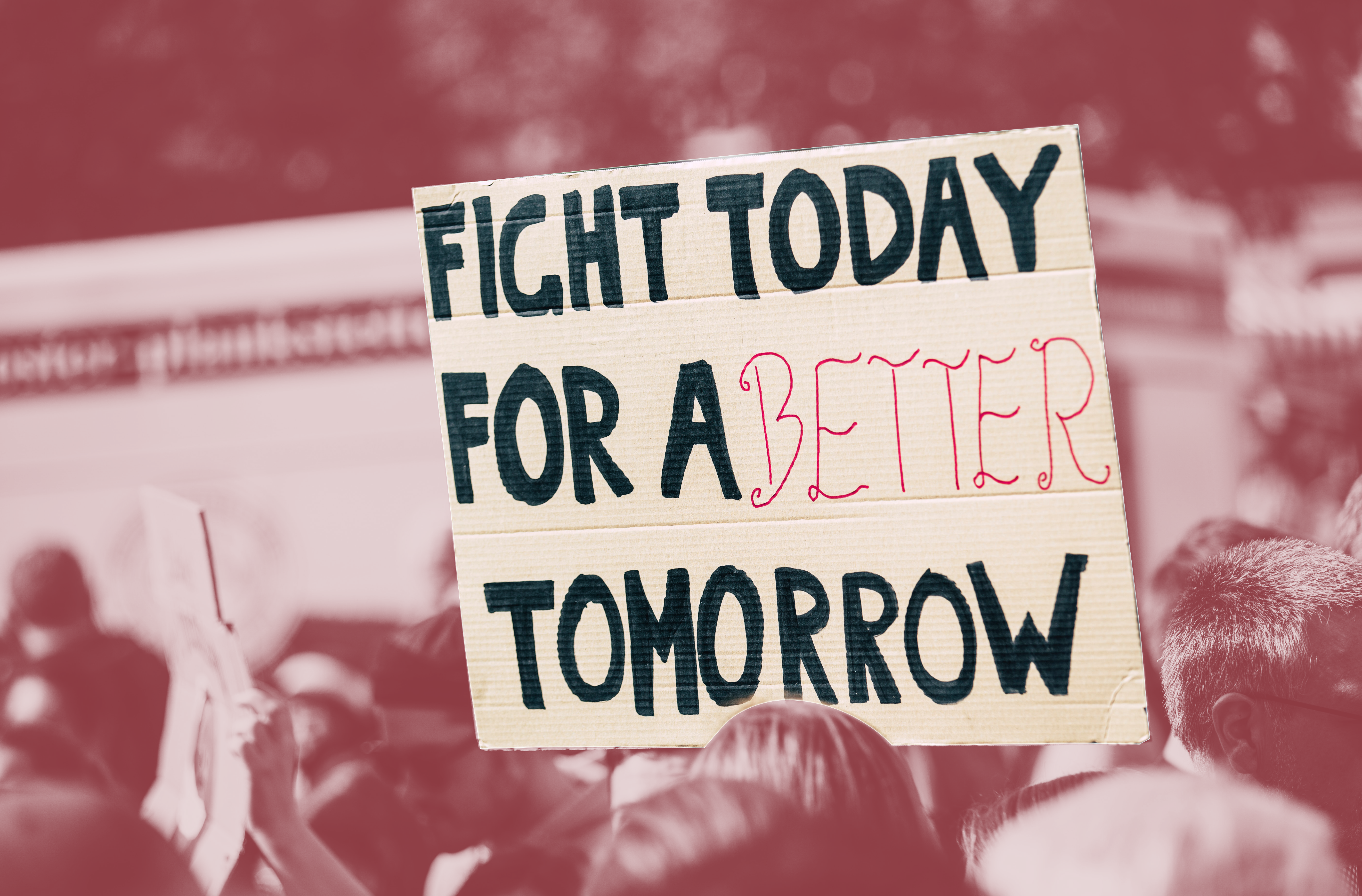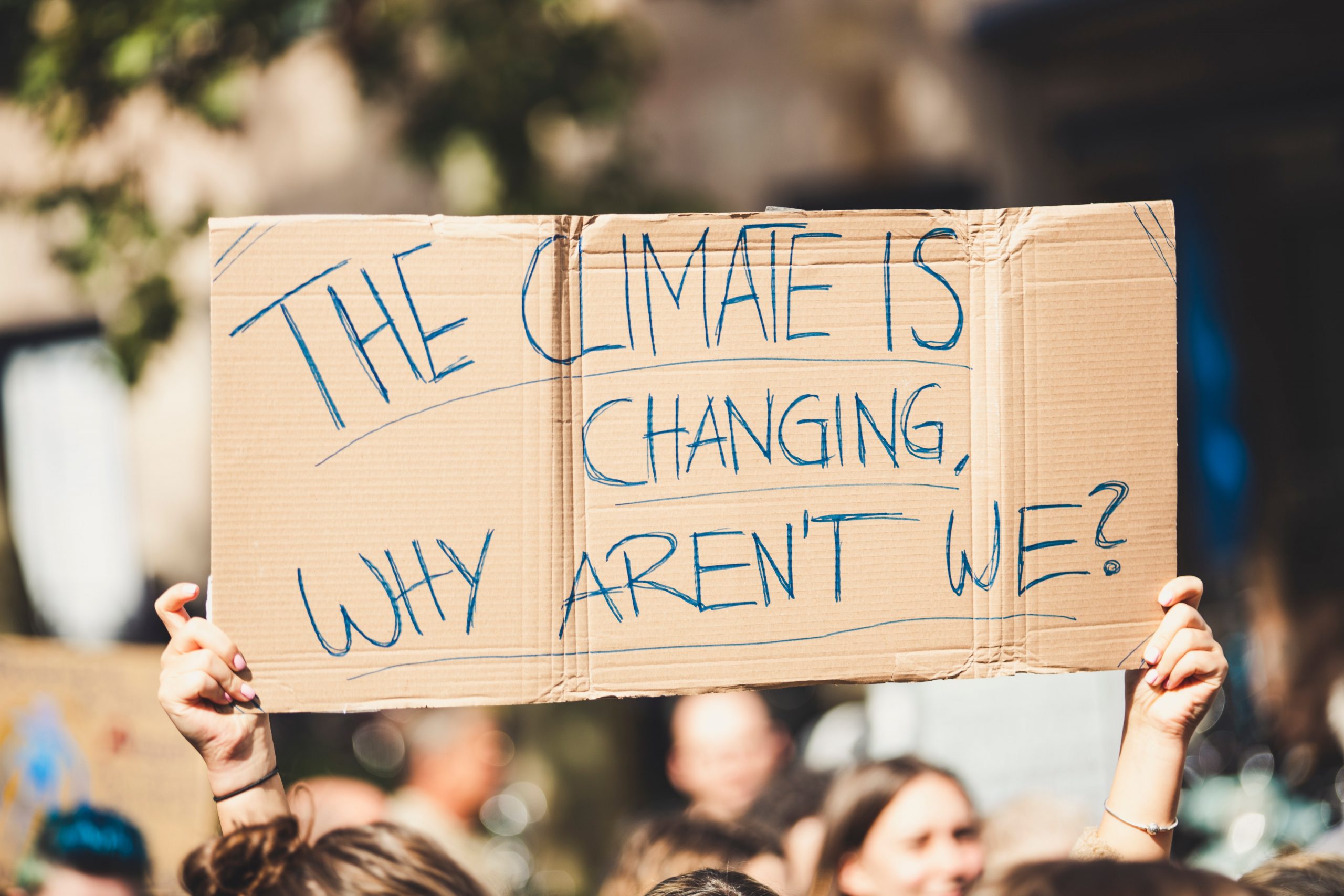‘All politicians are corrupt’.
An oft-quoted sentiment that traverses age, gender and political allegiances. It says it all and at the same time conveys almost nothing. It falls into the same category as ‘they’re all the same’ and ‘nothing ever changes’. These are the defeated words sighed out of the mouths of a disenfranchised electorate. They have become so axiomatic that the average voter will hardly even bother to analyse what it actually means to express such disillusioned political nihilism.
It is obvious to even the most casual observer that corruption in politics is both pervasive and eternal, but it is worth now in this moment of utmost political uncertainty, to examine the specific nature of the corruption we face today.
It starts and stops with one word: money.
I’ve always said that power is more important than money. But when it comes to elections, money gives power… well, a run for its money.
Frank Underwood
A 2014 study from Princeton University concluded that money is so pervasive in politics that the USA has more features of an oligarchy than a democracy: “the preferences of the average American appear to have only a minuscule, near-zero, statistically non-significant impact upon public policy.”
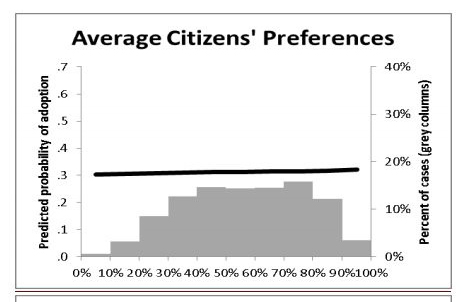
In a perfect democracy, a graph that displayed the relationship between public opinion and policy adoption would be a linear correlation; meaning that if 0% of the public wanted a policy it would have a 0% chance of becoming law and vice-versa. However, in the United States, as shown above, whether 100% of the electorate want something or 0% want something it has a roughly 30% chance of being converted into national policy.
So how exactly did this happen?
In August 1971, a corporate lawyer named Lewis Powell wrote a memorandum to the US chamber of commerce titled Attack on the American Free Enterprise System, an anti-socialist blueprint for the American Right-wing business interests to regain control of the nation. Two months later, President Nixon appointed Powell to the supreme court.
Over the course of the next decade two major decisions were adjudicated by the supreme court, in-line with the Powell memorandum, that changed the nature of American democracy forever. The first, Buckley v. Veleo heard in 1976 ruled that political spending was a protected by the 1st amendment right to free speech; the second First National Bank v. Bellotti extended the legal doctrine of corporate personhood by allowing privately owned businesses constitutional rights – thereby granting corporations the right to privately finance politicians. Later decisions such as the 2010 Citizen’s United v. FEC and 2014’s McCutcheon v. FEC removed the few remaining restrictions on campaign spending.
This is a story you won’t hear on cable news. The euphemistically named ‘campaign contributions’ have had nearly fifty-years of clothing in the veneer of legitimacy – not only accepted but celebrated as a crucial performance indicator of the health of a political campaign. In a system where money wins over 90% of elections, the rebranding of bribery is only too obvious. The mainstream media channels are the biggest recipients of this illicit donor money, they are paid handsomely to play political campaign ads, and generating massive profits for their corporate parents.
This broken system that near-guarantees the electoral success of the most pro-business candidates traverses both parties and infects every political issue and how it’s covered in the press. When people think of government corruption, it usually relates to a sweetheart deal given to an underqualified schoolmate of a cabinet minister, à la the now infamous Track and Trace and PPE funding earlier in the summer. Seldom are the dots connected to the most pressing social issues of our generation.
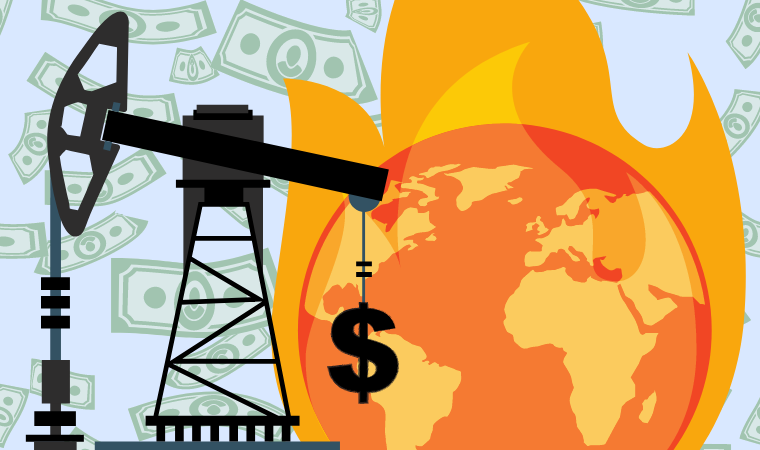
Climate Change
Climate change is the clearest example of private industry buying policy by bribing politicians. Every election cycle, one of the most reliable donors to politicians are lobbyists from the oil and gas sector. A biennial contribution of roughly $100 million nets an annual return of over $600 million in subsidies paid by the US taxpayer to oil and gas companies; a figure ten times larger than the national education budget.
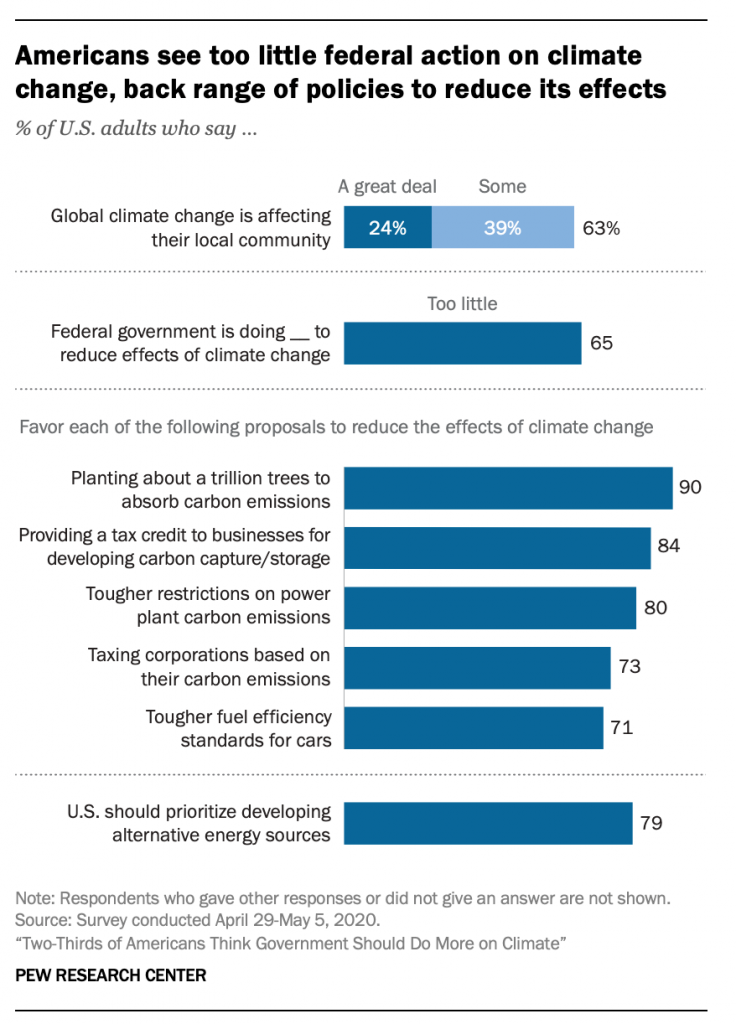
Pew research polling shows that an overwhelming plurality of Americans believe that urgent action is needed to tackle the existential threat of climate change, with some 63% agreeing that they have noticed the effects of climate change in their local community.
Americans consistently show support for much more aggressive action to be taken on climate change through measures such as carbon tax and stricter regulations on emissions – yet the national government refuses to take any action at all. The Trump administration has rolled back almost all Obama era environmental protections including bans on arctic drilling, restrictions on mining in national parks, and withdrawing the US from the Paris Climate Agreement.
Do not be fooled however, this issue is by no means one-sided. Democrats, as well as Republicans take millions of dollars every election cycle from oil and gas lobbyists. This bipartisan bribery is the reason why neither Hillary Clinton, nor Joe Biden will commit to a national ban on hydraulic fracking, which is proven to pollute air and water and increase the rate and intensity of earthquakes. While conventional wisdom in Washington dictates that swing-states like Pennsylvania cannot be won by opposing fracking, the political reality is that the average citizens are much more mixed on the issue – with latest polls showing that a small majority of Pennsylvanians oppose fracking. The real concern is whether a presidential candidate can afford to lose the financial support from those tied to the industry.
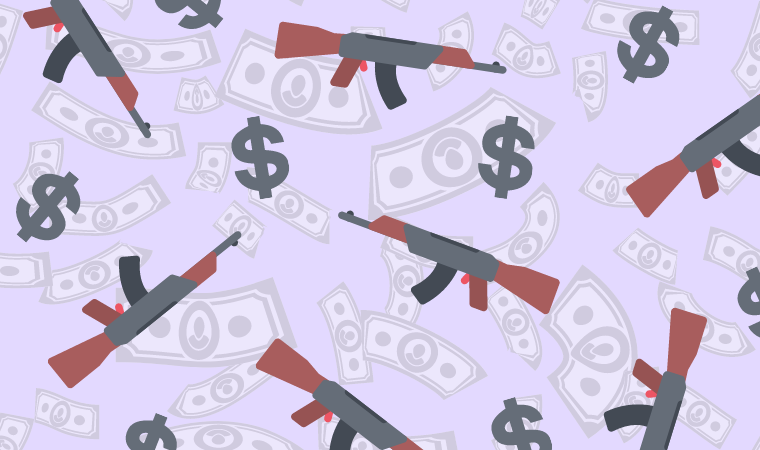
Military Industrial Complex
As surely as the sun rises in the East and sets in the West, the United States Congress will vote to increase the defence budget. The current annual budget is sitting at $750 billion, orders of magnitude higher than any other discretionary spending. Almost every year, including during Donald Trump’s impeachment, the Democrats in Congress appropriate more money than requested by the President.
To put this figure into context, the USA spends more on the military than the next ten countries combined.
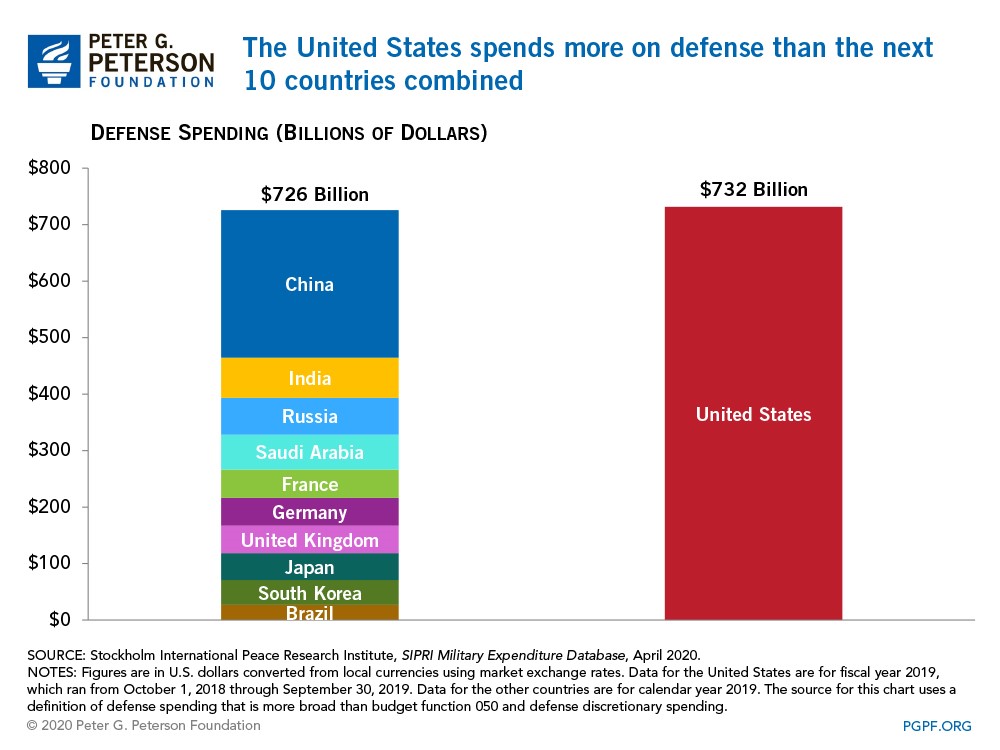
In 2016, the Pentagon announced that the Obama administration was dropping bombs faster than they could be replenished. In 2016 alone the USA dropped over 26,000 bombs across seven countries – Syria, Iraq, Somalia, Libya, Afghanistan, Pakistan and Yemen. This of course nets huge profits for the defence sector who build the planes, helicopters and missiles used to fight these foreign wars. The defence sector is by far the highest value-for-money when it comes to bribing politicians. Big name players such as Boeing, Raytheon and Lockheed Martin donate between only two and four million dollars per election cycle and are rewarded in contracts worth billions.
The media coverage of US intervention is almost always framed from the perspective of the drone. It is usually shaky camera footage and a climactic kill-shot seen as a billow of dust irrupting righteously from the ground. The reality is far more harrowing but no less dramatic. The Pentagon reports that only 1 in every 157 airstrikes results in a civilian casualty, independent reporting shows that the number is some thirty-one times larger. A report published by the New York Times in 2017 gives evidence that the most conservative estimate for the number of civilian casualties is 1 in every 5 airstrikes, a rise in total deaths from the Pentagon’s figure of 466 to the horror of over 14,000 innocent lives cruelly cut short by a American made bombs.

These deaths are not mourned by Western observers. Our governments and media do their utmost to justify and prop up the capitalist war machine that profits from the human misery brought on by imperialist foreign policy. When evil is committed overseas in countries rich in natural resources, our moral outrage is exploited by hawks who sell us an antidote of further military intervention against the latest in a long line of Arabian boogeymen. The actions of the US military are, alternatively, beyond reproach. Torture becomes enhanced interrogation and murder is rebranded as collateral damage.
The corruption of the military industrial complex and the sleezy politicians that profit off their blood-money is the unspoken rot at the core of American police brutality. Since 1997, the federal government has given local police units the power to purchase surplus military hardware from the Army. The grossly over-inflated military budget has all but guaranteed an abundance of over-produced weapons and ordinance, finally put to use for the purpose of disintegrating BIPOC communities, both foreign and domestic.
This degrading and diminishing of black and brown bodies overseas makes its bedrock on the domestic theatre of Chicago, Charlottesville, Flint and Minneapolis. The violence inflicted upon minority communities, particularly African Americans, is born out of a culture of white-supremacy that has gained legitimacy through use of state sponsored violence against black and brown indigenous populations overseas. The latest struggle in the USA’s unrelenting march for racial justice comes as a result in the excessive force committed against black Americans by over-militarised domestic police.
These issues of climate change and police brutality are united by their shared theme of systemic corruption culminated in the battle of Standing Rock, fought between the Standing Rock Sioux and self-proclaimed Water Protectors against the imperial might of the North Dakota State police.
In early 2016 construction of a multi-state oil pipeline named the Dakota Access Pipeline, or DAPL, began construction. The pipeline was planned to go from the Bakken oil fields in western North Dakota to southern Illinois, crossing under both the Mississippi and Missouri rivers and encroaching onto Native Indian land owned and governed by the Sioux tribe of Standing Rock. The pipeline displaced those living on the land, destroyed territory owned by the Sioux and threatened to poison the local drinking water.
Then-Democratic Senator for North Dakota, Heidi Heitkamp, who in a wild coincidence sat on the Senate Indian Affairs committee did not go as far as to support the construction of the pipeline, but in typical Democratic fashion, conceded defeat on the issue before the first salvo, saying:
When you look at it, we know one thing for sure: When the administration changes, the easement is going to be approved… I understand the frustration of the protesters, I just think that this fight is not winnable.
Under any other circumstance Heitkamp’s complacency would be reasonably associated with the $278,000 she and her campaign committee have taken in legalised bribes from the oil and gas sector. In Washington DC and in the mainstream press however, such a charge would be deemed scandalous – after all, that money was nothing more than a conversation.
Fellow Senator from North Dakota, John Hoeven (R), a member of both the Senate Indian Affairs and Energy and Natural Resources committee came out in support of the pipeline. An unsurprising announcement given his largest financial contributors came from the oil and gas lobby at a figure of $674,000, including a meagre $5000 donation from Energy Transfer Partners – the group building the Dakota Access Pipeline.
With no-one on hand from the government willing to lend their support to the Water Protectors, the only thing left was for the state police to be given their marching orders and clear out the protestors. During the summer of 2016 hundreds of protestors in North Dakota were arrested, sprayed with freezing water cannons, shot at with rubber bullets, pepper sprayed and attacked by dogs.
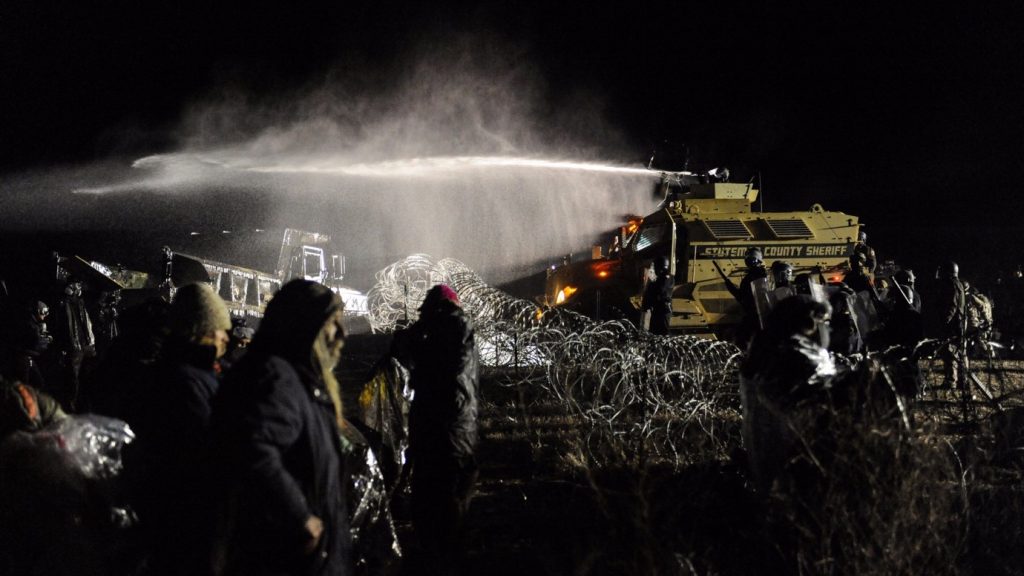
This violence committed against Native peoples of the continental United States is the latest in America’s long and shameful history. Make no mistake, the desecration of sacred Indian land, the forced displacement of the Sioux and the violent suppression of local tribespeople can be transcribed into Indigenous history alongside Manifest Destiny, the trail of tears and the massacre at Wounded Knee. Except this time, it festers inside a rotting web of cheaply bought, corrupt politicians that care more for their own re-election prospects than the protection of lives in the State they swore to represent.
These are only three examples of a nearly inexhaustive list of social justice issues that cannot find a resolution until the corrosive issue of money in politics is addressed as our number one priority. Extinction Rebellion cannot achieve its goals of a greener world, free of reliance on fossil fuels until the money from oil lobbyists is removed. Black Lives Matter has no hope of criminal justice reform until the blood-money from weapons manufacturers and the prison-industrial complex ceases to incentivise policymakers to put profits before people. The opioid crisis that is killing more than 60,000 Americans every year and the out of control price gauging of essential medicines and hospital treatments will not end until pharmaceutical money is taken out of the government. The rampant gun violence that makes cinemas, schools and shopping malls targets of stochastic terrorism will not end until the unlimited political spending from the NRA is curtailed.
Every social justice advocate must dedicate themselves to excising the malignant tumour of vested financial interests or suffer the consequences of a steady march into a totalitarian corporatocracy.

Dane Harrison is a trainee solicitor with a BA Theology from the University of Exeter.
Twitter: @rexdane
Book: The Four Horsemen

